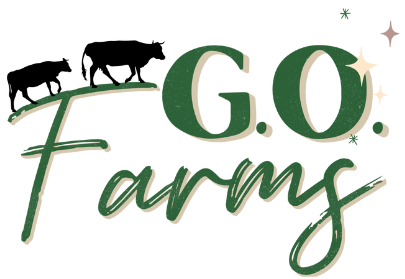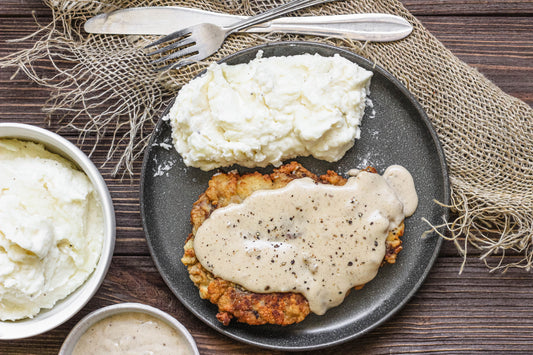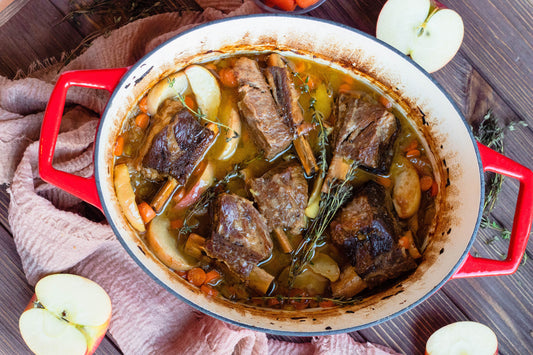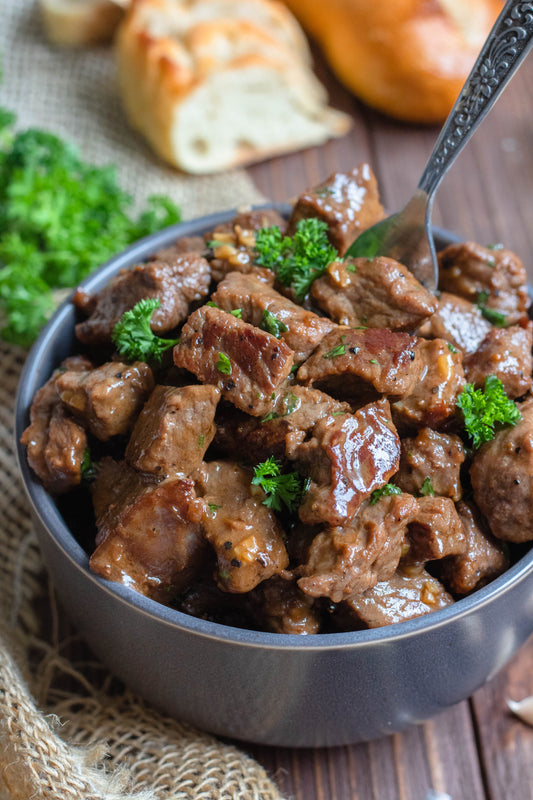Why its Important to Buy Beef Directly from Farmers
As a consumer, it's important to know exactly where your food is coming from and how it’s processed. At GO Farms, we believe in responsible farming to include Animal Welfare and Good Agricultural Practices. Our farm practices include low till, pasture raised, and rotationally grazed herd management. Rotational grazing has many environmental benefits to include: increased forage production, soil fertility, and resistance to drought, with less wasting of forage, less soil compaction, and control of less desirable plants. Further, it promotes low stress on animals as they learn to associate humans with good food and provides opportunity for ranchers to assess the health of each animal. We over-seed some of our Bermuda pastures with wheat and cut our own hay.
We have a herd preventative health vaccine program and nutritional program with a contracted veterinarian to minimize disease and unnecessary antibiotic use or animal suffering. Total quality management of our cow calf operation involves culling breeding stock, proper cattle handling, mitigating biohazards, and humane euthanization of terminally sick or injured cattle. GO Farms is also a member of the Oklahoma Cattleman’s Association and the National Young Farmers Coalition. We are certified in the Cow/Calf Beef Quality Assurance Program
Finding a Farm to Buy From
As a buyer, when looking to purchase meat products directly from a farm there are several points to consider. First, consider your meat preferences, including the cuts or types of meat you like. Location and price are also considerations. Spend some time researching the farms in your area, because livestock production systems differ and that could influence your choice. Perhaps you prefer to support a small, local producer instead of a larger, regional livestock operation. The great thing about buying directly is that you decide which farm is best for you! If you are looking to support an Oklahoma local, family owned business, GO Farms is for you!
Find a local farmer by :
-
Word of Mouth
-
Social media
-
Websites
-
Local Farmers Markets
-
List of licensed meat sellers from the Department of Agriculture
Retail vs. Share
Many meat handlers sell meat as retail cuts or as a share. Buying retail cuts is like buying meat in a grocery store. The price is determined for each individual cut. A share is more like buying meat in bulk. The price is determined for the bulk, generally at a discount compared to retail. Shares can generally be purchased as whole, halves (sides) or quarters. A share will be processed and packaged like a retail cut, but occasionally the buyer chooses the cuts if the butcher allows. For example, the option of steaks, roasts, stew, cube steak, and ground beef are all available for one share.
Know Your Budget
In order to decide whether to purchase meat by the individual cut or as a share, you need to know your budget. Discounts to cuts may be applied if purchasing in shares compared to purchasing individual retail cuts. Shares can be a great option for large families or sharing meat between multiple families, friends or coworkers. Splitting the share can also help split the cost.
Benefits of Supporting Your Local Farmers
When you buy food directly from a farmer, you support local and global food supplies as well as businesses and families in your community. Buying meat and other food products from local farms, whether small or large, allows you to truly connect with your community and your local food sources. Producers are always willing to educate buyers about their products and operations, so never be afraid to ask more about where your beef comes from and the practices used before it was brought to market!
Sources :
https://www.ncat.edu



